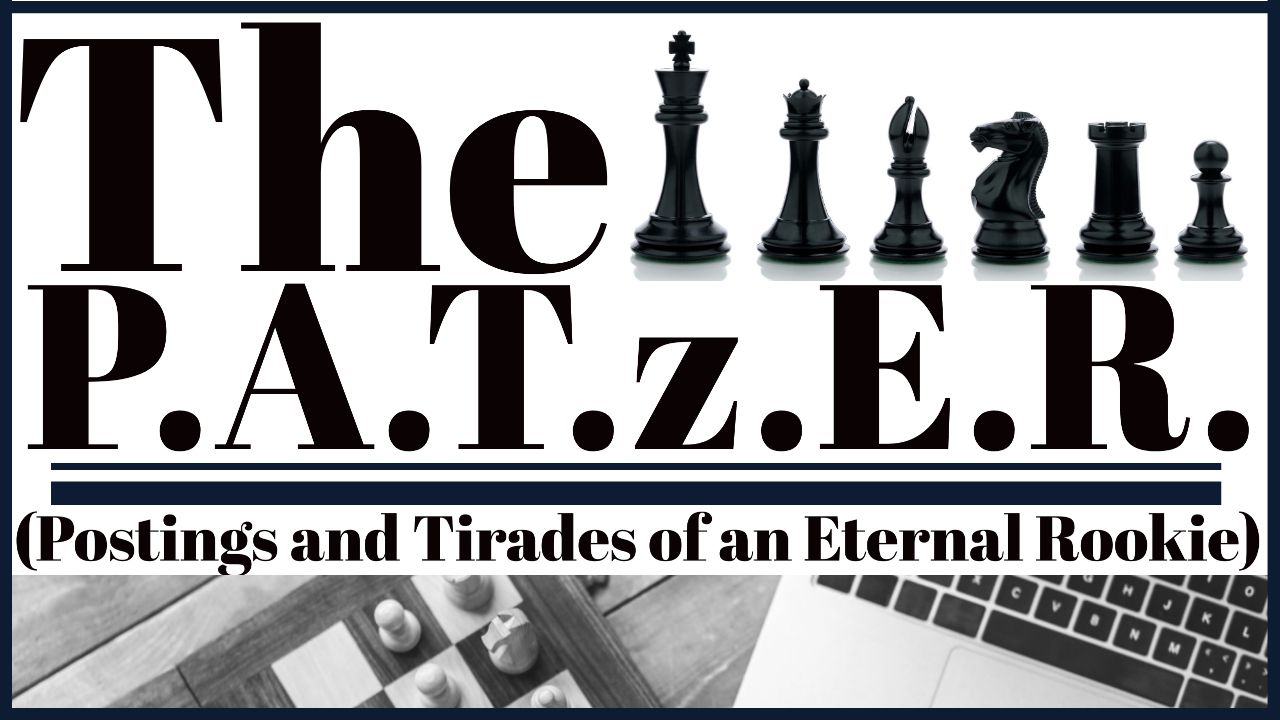
Finding your faults is the first step to self-improvement... In both chess and life.
The last several months have been such an eye-opening experience for this ole Patzer. First and foremost, to get better at chess you must have a plan. When I started out on this journey a few months ago (and at every point in the past when I tried improving my game), I never really had much direction.
This time, I utilized a wonderful coach for a couple of months to really help steer me in the right direction. And wow, did it. I learned a lot about my chess skills (or lack thereof) and about myself in the process.
Given that there is no shortage of online resources for those of us seeking to improve our chess, it is tough to pick the right resources. Many of the resources might be excellent, but we might not be ready for a particular study tool.
How many times have we studied an opening over and over and then realize it wasn't really helping our game?
With the help of my coach, I learned that I needed to really work on my tactics. So I started doing puzzles, and as the evidence posted showed, I wasn't getting much better.
After looking at the types of puzzles I fail, one thing became very clear about my chess game: I lack the ability to properly recognize common patterns in chess.
Herein lies one of the most important benefits that chess instills in us: the ability to relentlessly find our faults and limitations and work to correct them. Think about this for a moment. So many of life's problems are really about the inability to recognize a problem within ourselves and then come up with a plan to solve it. This goes for our jobs... our health... our relationships. Those that possess the ability to self-reflect and self-improve are on a path to success and wisdom.
And there is no shortage of faults in my chess game! This is why, when we would analyze my games, my coach would ask, "Why did you move your knight there?" And after studying the board with someone who is much more masterful at the game, we would find that I didn't have a solid answer. Further, I would often miss the best move; because I didn't recognize the pattern.

So lately, in my ongoing quest to self-improve, I have backed off the general puzzles (with the exception of doing Puzzle Rush just to kill time). I've started working on a book called Common Chess Patterns and have been working through those examples over and over. I'm going to pound these patterns into my brain and then start revisiting the puzzles and look for improvement.
Meanwhile, I am also just playing more games, both online and with my eBoard.
And finally, I am making sure that I am spending some time just enjoying the beauty that is chess by studying games of the masters. I've really enjoyed studying the games of Paul Morphy and might write about this in the future. His ability to sacrifice material for incredible board positions just astonishes me.
And despite having solid and hard evidence that I am improving, I still feel like my games are substantially better than they were a few months ago. Just recently I won two games in a Chess.com tournament game where I found winning forks, that I am convinced I never would have seen in the past.
So this is where I am in my chess life right now. I will continue to keep you all posted on my adventures. Thanks for taking this trip with me.
What realizations have you made about your game? What are you working to improve? What concrete improvements have you seen? Share your thoughts in the comments below!
